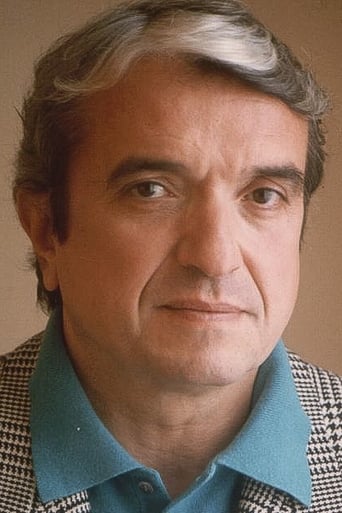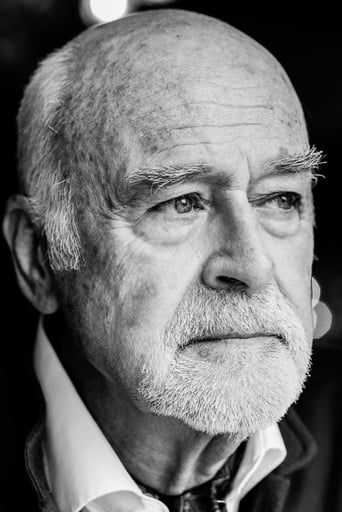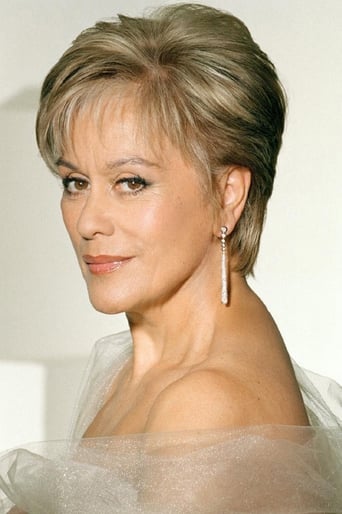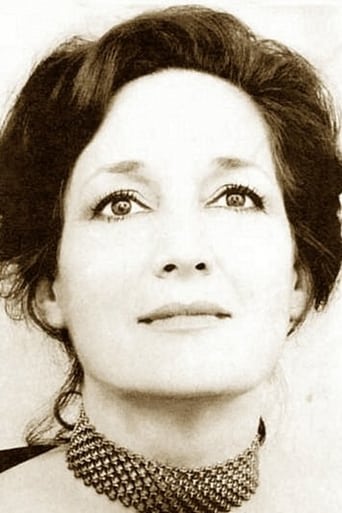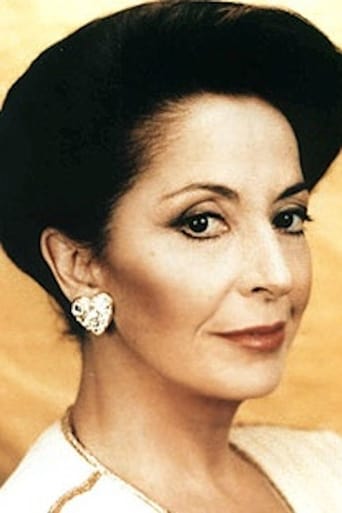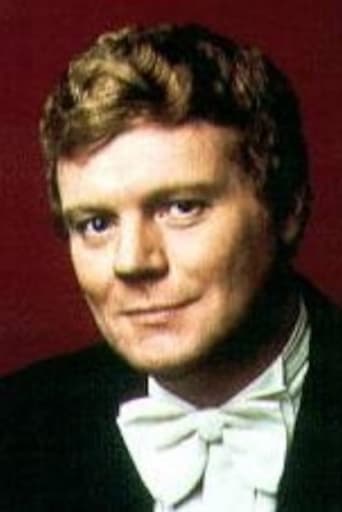Teyss
Filmed opera can be shot either on stage (one lead example is "The Magic Flute" by Ingmar Bergman, but there are many others), either on site as in a fiction movie. (Rarely, it combines both elements, for instance "The Tales of Hoffmann" by Powell and Pressburger.) "Don Giovanni" is a masterpiece of the latter kind.Granted, the film is not the first opera off-stage: among others, we must mention at least the memorable "Tosca" by De Bosio (1976), shot in the actual Roman locations where the action is supposed to take place. However "Tosca" was a TV movie, while "Don Giovanni" was a full-scale cinema movie with live recordings. As such, it has set high standards and a trend that was imitated later on: "La Traviata" by Zeffirelli (1982), "Carmen" by Rosi (1984), "Madame Butterfly" by Mitterrand (1995). Unfortunately, these films are rare because of costs (settings, singers mobilised for a long period, important crew, dedicated orchestra, etc.). Hence stage filming is more common because it is cheaper to produce: apart from royalties, there are few additional costs than stage production.Even if you are not an opera amateur, you will probably like this movie: it is loaded with action and drama, settings are impressive, costumes are gorgeous. And the music, ah the music, anybody would love it. Mozart is eternal.Where to start with such a masterpiece? Since it is an opera, with the most obvious: the singers are top class. Ruggero Raimondi is a fabulous lead role. He conveys an intense aura throughout the movie, he gives everything to the character, he strips figuratively and literally; he does not play Don Giovanni, he IS Don Giovanni. We knew he was a great singer, we now know he is a great actor. José Van Dam is a colourful, stylish, smart Leporello. It is a bright idea to attribute this role (that was then frequently considered secondary) to such a talented singer: the character and plot gain depth. Teresa Berganza is a prodigious Zerlina: although she was more than 40 when the movie was shot, we believe she is a young peasant. Despite her small role, she is the most convincing of the female singers. Most other performers are remarkable, but these three break the house down in terms of singing and acting.The orchestra, directed by Lorin Maazel, is a firm support to these great artists. To be honest, it is not the best interpretation but does the job for the purpose of the movie, with its dynamic tone and sharp texture. (For information, the reference recordings are by Giulini, which has my preference, and Krips. I would also recommend Jacobs, an elaborate version, or Gardiner, a red-blooded account). At the time, the acoustic was somewhat flawed, which raised criticisms, but has been corrected since.Settings and costumes do more than illustrate the plot: they give it an altogether new dimension. Note the movie does not aim for historical accuracy (as the above-mentioned "Tosca"): it was shot in Veneto, Italy, while the action is supposed to take place in Sevilla, Spain. Losey aims here for maximal aesthetic effect. On the one hand, details enhance the feeling of reality: peasants working, eating, sleeping; a lively wedding; a lush party. On the other hand, remote surroundings, elaborate costumes and mysterious masks create a timeless and abstract atmosphere. This gives the movie its universal dimension, which makes me believe it will never be surpassed.In such an environment, the fabulous arias rise to artistic stratosphere. "Madamina, il catalogo è questo" is illustrated by Leporello unwinding a huge manuscript down stairs and a hill: we can barely believe what is happening, we are bewildered like Donna Elvira. This brilliant idea has since been imitated numerous times on stage, in different forms. "Là ci darem la mano" is sung in a beautiful, sunny house, surrounded by friendly folks: we believe, as Zerlina, that Don Giovanni will love her for ever. "Dalla sua pace" is sung by Don Ottavio in a boat floating among marshes: the calm and surrealist surroundings increase the character's loneliness and melancholy. Likewise later on with "Il mio tesoro", where he wanders alone in deserted gardens.The overture, where there is no action, always is a tricky part: what to film as the music plays? Losey imagines a splendid and clever scene: Don Giovanni visits a glass fabric. We see him behind a fire, an illustration of his devilish character and an anticipation of the fact he will be devoured by the flames of hell. Losey even manages to beautify the epilogue (after Don Giovanni dies), clearly not Mozart's best piece of music. The duel, the wedding, the love scenes, the party, the cemetery, Don Giovanni's death, etcetera, etcetera: all scenes are impressive and flawless. The movie is a long string of perfect pearls.Enhanced by this artistic vision, the opera's themes are better than illustrated: they are transcended. Desire, love, ambiguity, humour, social constraints, domination, money, destiny, fate: it is rare to see a movie that is at the same time so enjoyable and so profound. Regardless if you are a connoisseur or not, "Don Giovanni" will change your vision of filmed opera, opera in general, classical music, music in general and even cinema. Already outstanding at the time, it has now become a must-see classic.
FloatingOpera7
Not only do we get a visual feast, but the singers are incredible, fleshing out the dramatic core of this opera and even delivering moments of genuine beauty and splendor. It stars Ruggero Raimondi as the seductive and sinister Don Giovanni, Edda Moser as Dona Anna, Kenneth Reigle as Don Ottavio, Jose Van Dam as Leporello, Kiri Te Kenawa as Dona Elvira, Teresa Berganza as Zerlina, Malcolm King as Masetto and John Macurdy as the Commandatore. In a minor/silent but seemingly important role as a servant in black is the youthful-looking Eric Adjani. The multiple dimensions of this film are too much to talk about but I will try to highlight some of them.First of all, Lorin Maazel as conductor is perfect. He brings out the dramatic content without sacrificing the melodic beauty Mozart wrote into the opera. The cinematography is gorgeous. It was shot in Venice (during the Overture we see the canals and opulent boats), Vicenza the countryside, crowned by Italian villas and palaces the Villa Rotunda is dismissed as a historic Italian landmark and becomes Don Giovanni's regal estate, and some indoors scenes were shot in the interior of the Olympic Theatre. Most of the movie is shot in fresh natural sunlight or moonlight. The powerful performances by the lead singers is extraordinary and each bring a colorful and individual portrayal. Ruggero Raimondi is a rare breed of "high" bass, capable of producing masculine chest voice but also a radiant, tenor-like top register. He is seductive but devilish in his portrayal. His eyes, especially, seem to give away his dark predatory soul. In Raimondi, we have one of the best Don Giovanni interpretations. He's lewd, he's lusty, he's murderous, he's a shameless libertine whose motto is "Viva La Liberta!" Long live liberty! The film has subtle symbolism and poetic imagery. For instance, during the Catalog Aria that Leporello sings to Elvira, he reads from a seemingly unending list in which the Don has written his conquests, a list that goes on and on, draping the stairs and rolling to the road toward the villa. During the Seduction duet "La Ci Darem La Mano" we briefly glimpse a huge Crucifix and we see a dog sleeping. These I took to represent the ethic and morals that Zerlina would compromise if she succumbed to the Don's passions- she would betray her Catholic faith by breaking her engagement with Masetto and being unfaithful unlike the faithful man's best friend the dog. Also, the Commandatore is evidently foreshadowing his vengeance on the Don as he is dying, when he is pointing at the Don.The complex Dona Ana' dilemma: she is possibly lusting after the Don and attempting to fight off her own desire for him and keep faithful to Ottavio. Whom is she mourning really when Don Giovanni is sent to Hell ? She is always claiming that she mourns her father's death but yet as soon as she hears that the Don has been sent to Hell, she postpones the wedding to Ottavio for another year. Very odd. Eric Adjani is the silent and mute strange servant in black. Who is this person ? Who's side is he on ? He is evidently one of the Don's many servants but during the Overture he is looking knowingly at Dona Ana as the fire furnace is being installed in the Don's home. Also, during the scary scene in which the Commandatore statue comes to dinner, this shady character shows no sign of being frightened and in fact one feels that he is in on it somehow, as if he is an avenging angel as well. He seems to have knowledge of something the audience doesn't know and his personage both opens and closes the opera literally as he closes the doors to the Don's villa.Edda Moser portrays a supremely dramatic Dona Anna. She is Wagnerian in her dynamic performance, a steely victim, a wronged woman who seeks revenge on a man we also feel she might possibly be attracted to, mainly because her fiancé, Kenneth Reigle's Ottavio, is so lackluster and dull. Now, I admire and love Kiri Te Kenawa in various other roles- she is the definitive heroine in Cappricio and perhaps even the most definitive Fiordiligi in Cosi Fan Tutte and a rather touching Countess in Figaro, but as Dona Elvira she lacks the fire and fury that is so vital to the role. Dona Elvira is the most Italianate heroine in the opera and she has arias and lines which focus on her feisty and fiery temperament. Kiri sings gorgeously but her emphasis is on the beauty and consequently comes off as too noble, too majestic and dignified. She should be outraged and obsessive, wanting more than anything to get back at Don Giovanni as well as to land him for herself. But Kiri does not show us any of this necessary dramatics.Teresa Berganza is an adorable Zerlina, cute and clever. Note how she is almost tempted to run off with the Don but wises up and decides to stay with her fiancé Masetto when she realizes Don Giovanni is a devil. Berganza is actually my first choice for the best Zerlina. Malcolm King, who is sexy as hell, is equally adorable as Masetto, especially when we see how jealous and easily provoked he is. Finally, Jose Van Dam as Leporello is quite good, especially because he's not just a loyal "idiot". He's in fact true to Mozart's concept of Leporello- a servant who is wiser than his master. Van Dam captures the noble spirit of Masetto, who is just a pawn to his master's schemes, but who on his own would definitely be on the side of the good guys.
Lanwench
This is a wonderful film, the only non-stage performance I've ever seen of this incredible opera. I saw it a million years ago in college and have probably watched it a dozen times over the years. Raimondi is demonically compelling as the Don, wicked, handsome, sardonic, and Van Dam plays off him as Leporello just wonderfully, balancing humor and pathos. Riegel's Ottavio is just as he should be, a humorless square, and Te Kanawa soars as Elvira. My only casting complaint is with Moser as Anna; she sounds very shrill. I liked the hint that perhaps Anna was, despite appearances, actually quite attracted to the Don as well; her protestations to the lumpish Ottavio that she thought it was actually he who'd come to her bedroom didn't persuade (and frankly, I've always wondered why he was such a putz as to buy it). The settings are lush and lovely, including Palladio's Villa Rotonda. Of course some of the lip-syncing is off a bit, but that's to be expected. I also eagerly await a day when this film is available on DVD.

